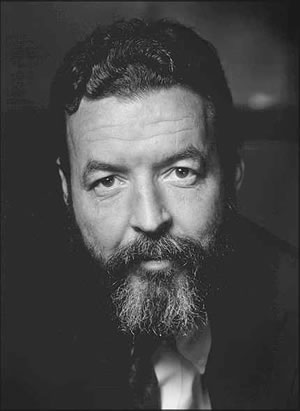 Randall Jarrell” width=”300″ height=”411″ class=”alignright size-full wp-image-925″ />Randall Jarrell was born in Nashville, Tennessee on May 6, 1914, but spent his early childhood in Los Angeles, only returning to Tennessee after his parents divorced. He graduated from Vanderbilt University in Tennessee, and soon after took a job as a teaching assistant at Kenyon College in Ohio. During his years at Vanderbilt and Kenyon, he studied with such well-known poets and writers as Robert Penn Warren, John Crowe Ransom and Robert Lowell. In those years, he was most well-known for his criticism of poetry, though his poetry was published even during his undergraduate years.
Randall Jarrell” width=”300″ height=”411″ class=”alignright size-full wp-image-925″ />Randall Jarrell was born in Nashville, Tennessee on May 6, 1914, but spent his early childhood in Los Angeles, only returning to Tennessee after his parents divorced. He graduated from Vanderbilt University in Tennessee, and soon after took a job as a teaching assistant at Kenyon College in Ohio. During his years at Vanderbilt and Kenyon, he studied with such well-known poets and writers as Robert Penn Warren, John Crowe Ransom and Robert Lowell. In those years, he was most well-known for his criticism of poetry, though his poetry was published even during his undergraduate years.
It was not until 1942, when he was 28, that his first book of poetry was published. Blood for a Stranger was not nearly as popular as his critiques of other people”s work. His columns, published in The New Republic, established him as a witty, often scathing but eminently readable poetry critic, a voice to be reckoned with in the world of poetry.
In 1942, shortly after the publication of his first book, Jarrell joined the Army Air Force. For the next four years, he served as a training navigator in Tucson. His poetry from those years was based heavily upon his experiences as a soldier. His style of writing changed considerably, becoming less fanciful and more direct. His next two books were published in 1945 and 1948, but many feel that his greatest contributions to the world of poetry during those years were the many valuable suggestions he made to Robert Lowell concerning Lowell”s manuscript, Lord Weary”s Way. When he left the Army, he took the position of editor of the Nation, drawing submissions of poetry and reviews from some of the finest writers of the era.
Jarrell”s criticism and essays on poetry helped establish the reputations of many fine poets, including Robert Lowell, Elizabeth Bishop and William Carlos Williams, and his essays on Frost, Marianne Moore, Walt Whitman and others are still considered classics of literary criticism. It was not until 1960, with the publication of The Woman at the Washington Zoo that his own unique abilities as a poet became clear. That book won a National Book Award, and was followed by his 1965 book, The Lost World.
Throughout most of his life, Jarrell was better known for his writings other than poetry. He wrote popular books for children, and translated Faust, Chekhov and several Grimm fairy tales. From 1956-58, he served as poetry consultant to the Library of Congress, nowadays called Poet Laureate of the United States. Shortly after the publication of The Lost World, Jarrell became depressed and attempted suicide. During his convalescence, he was struck by a car on a country road in Chapel Hill and killed. The coroner ruled the death accidental, though there will always be questions about it.
Jarrell left behind a powerful legacy of poetry – not only his own, but that of the many poets whose work he influenced and helped popularize.


You must register to comment. Log in or Register.